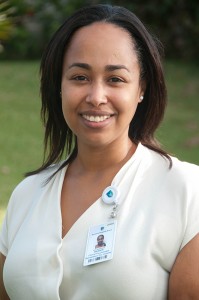Understanding Post Traumatic Stress Disorder
 [Written by Dr Shawnee Basden]
[Written by Dr Shawnee Basden]
Lately it seems that there are many difficult and traumatic things happening in the world both near and far. Bermuda has experienced several sudden and extremely tragic deaths. On a world stage a war is raging in Eastern Europe and the global community continues to battle against an insidious virus which has touched most of our lives.
Some bad experiences that we encounter may be considered traumatic. This might involve an experience where your life or a loved one’s life were threatened. It may be that you experienced an assault or traumatic injury. We also know that trauma can be more insidious and long lasting such as abuse be it physical, sexual, or emotional. After a traumatic event it is normal to have some psychological changes to functioning. Some people may experience heightened anxiety or depression while others may show no change immediately after the trauma and may develop symptoms later. For most of us when we experience a trauma we will eventually recover and return to normal functioning; however some individuals may go on to experience a significant psychological condition, Post Traumatic Stress Disorder [PTSD].
According to the National Institute of Health in the USA, approximately 3.6% of Americans have experienced PTSD in the past year. PTSD can be a debilitating psychological condition. The main symptoms include re-experiencing the trauma through flashbacks, dreams, or intrusive thoughts and physiological symptoms. Individuals may have a strong physical reaction when reminded of the trauma and may then avoid people, places and things that will remind them. They may experience significant mood changes including fear, shame, anger, depression, and irritability. All of these symptoms can have a significant impact on that person’s behaviour. They may struggle to get adequate sleep and also find it difficult to settle and relax being hyperaware of their surroundings. Additionally, some individuals may engage in risky behaviours and also may use drugs or alcohol to cope.
While these symptoms are intensely uncomfortable and can significantly disrupt a person’s life and functioning, treatments can be very effective in improving symptoms and people can make a full recovery and live satisfying lives. In general, treatments for PTSD focus on understanding the connection between thoughts, feelings and behaviours and specifically how behaviours may be working to keep symptoms going. During treatment a therapist will help the individual challenge any mal-adaptive beliefs and interpretations of events or persons. Therapists also help those with PTSD to face difficult situations and reminders of their trauma, with new coping skills. Eventually the individual will begin to feel safe again in their environment and will be better able to manage symptoms that arise. Some individuals also benefit from the introduction of medications that work to lessen feelings of anxiety and fear, but this is not necessary for successful treatment outcomes.
In Bermuda we are fortunate to have access to excellent psychiatric and psychological care. At the Mid-Atlantic Wellness Institute, people are able to receive psychological and psychiatric care with no out-of-pocket cost thanks to a government grant for mental health services. Additionally there are many psychologists and other mental health practitioners in the community who are specially trained to work with people who have experienced trauma. In the community most clinicians will accept insurance however you may be responsible for a small co-pay. Family doctors/general practitioners are an excellent source of information and referral if you need advice about accessing community-based treatments.
The most important message about PTSD is that while it is a significant psychological condition there are excellent treatments available and people can make significant improvements in symptoms and experience fulfilling lives.
- Dr Shawnee Basden, PhD is a clinical psychologist with Bermuda Hospitals Board. Her case load is varied and includes those who have experienced traumatic brain injury or physical illness, persons with dementia illness and teens with eating disorders. Dr Basden also presents the Mental Health First Aid course offered by the Mid-Atlantic Wellness Institute for members of the public to learn more about mental illness including the specifics of common conditions. This education enables people to better understand and interact with those who have mental disorders.
Read More About
Category: All



Thank you, for this article and your service.